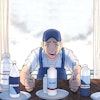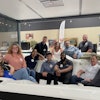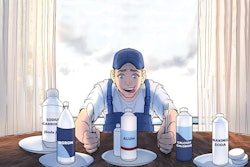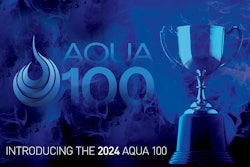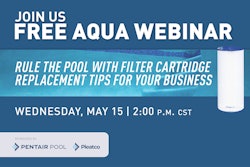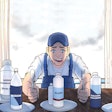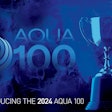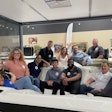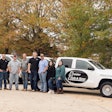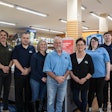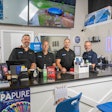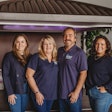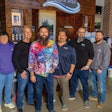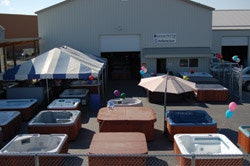
A key survival skill in this economy, then, is the ability to maximize the opportunity presented by the spa service client.
Successful dealers evolve their own strategies based on local conditions. AQUA spoke with three dealers who have done just that - figured out innovative ways to keep the service revenue stream swift.
MOUNTAIN HOT TUB BOZEMAN, MONT.
Mountain Hot Tub is a thriving dealership nestled in the Rocky Mountains north of Yellowstone. Although tubbing comes as naturally here as hiking and skiing, and there are built-in spa market advantages such as posh vacation homes and resorts in addition to the residential market, a brisk service business remains an important staple for the company.
Of course, the key to a good spa service trade, like any other service or product, is to get customers thinking about it.
Warehouse 'Em
One way they do that at Mountain Hot Tub, says general manager Kelly King, is by shutting down the showroom and bringing the customers into the service warehouse once a year for a big blowout sale event.
"We're getting ready to do it this weekend," he says. "We have a 5,000-square-foot warehouse that we transform into a temporary showroom with banners and so forth for our 'Spa Warehouse' sale."
Everything is discounted for the event, from spas to chemicals to accessories, which really draws a crowd, King says, right into the heart of the service department.
"When they see what we have behind the scenes in the service end, it really surprises people. The front of the store is what people normally see; they walk in to buy chemicals or get their water tested or shop for hot tubs, but the size of our service department and warehouse facility where we do repairs and refurbishing, that really surprises them because all that happens behind the scenes and nobody gets a chance to see it until the warehouse sale comes along.
"So it really serves a lot of different purposes, not only to generate some excitement and bring people out to buy things, but to give people a behind the scenes look at the scope of our business, and boost the image of our service department."
Don't Make Money, Make Customers Happy
A second, and perhaps more important, pillar that supports MHT's success is something rather simple yet at the same time profound. It has to do with the mindset of the staff. MHT tries to get its employees not to focus primarily on selling things, but on making customers happy. King figures if customers are happy, profits tend to take care of themselves.
"Some businesses go to their employees and say, 'Hey, we need the money, get out there and take 'em for all they have.' Well, we don't want that in our employees' minds. We want them thinking, 'Let's make these customers really happy.' So we talk to our employees about approaching it that way. We try to get them to understand that we're not just trying to sell things, we're trying to secure our customer base and hold onto our market share and grow the business, and the only way to do that is through happy customers.
"For the long-term success of our business, we need our customers to feel really good about owning a hot tub, to trust us that we're not going to try to sell them things they don't really need. And if in the end they see that what we're really trying to do is make their life better, then it's a win-win.
"So we look at our value-added service as a way to help a customer by taking care of their hot tub. They can stop struggling with it and just enjoy it. And making sure they get what they need without having to make a trip to the store, that's important.
"That really is our goal, to simply make our customers happy, and it has carried us through the tough times. The one thing we have after 30 years is a really deep and loyal customer base, and we can't afford to let go of that."
NORTHWEST HOT SPRINGS
BURLINGTON, WASH.
The coastal spa market that surrounds Northwest Hot Springs in Burlington, Wash., shares little with Mountain Hot Tub's home on the range. Spread over five counties along the shores of Puget Sound between Seattle and Vancouver and taking in the San Juan Islands, a spa service call can easily require a two-hour commute and perhaps a boat ride.
With customers widely dispersed and without large concentrations of wealth, the company has had to make every spa customer count in order to flourish for the past three decades.
Flexible Skills Maximize Your Reach
So unlike many dealerships where repair expertise is limited to one brand, NHS retains a flexible staff with wide-ranging skills capable of fixing just about anything.
This helps enormously, says co-owner Dan Hyatt, because it exposes the company to more customers. The repair customers that would have to be turned away if NHS lacked the expertise to fix their spas are the very same people who could be thinking about a new spa purchase, he says, and the chance to charm them with an honest and efficient service tech is a huge advantage for the dealership.
"In most big cities, a dealership may only service its own brand," Hyatt says, "but we've been repairing every brand for 26 years because we want to open the door to that new spa customer. We want to get them to bring their water in and sell them chemicals, and this is a good way to get to know them. We want to make contact and get their e-mail and get them into our database.
"Otherwise, you're telling people that need service, 'Hey, if you want to get your spa worked on you're going to have to find the guy you bought it from or some independent.'"
It's a long-term commitment, and the strategy can take some time to pay off. It may be years before a rival-brand-service-customer finally decides to upgrade.
The approach depends on making sure service techs are on board with the whole idea, Hyatt adds. "Most techs are good techs. Some understand how to sell and some don't. But they're the ones making contact in the field, they can see the conditions -the customer's got an old, uninsulated piece of junk, and they can make payments on a new spa with what they're spending on repairs for the old one.
"The easiest thing to do is just have them plant the seed with the customer, mention it to them, and then come back and report the situation, saying, 'Hey this guy's got a piece of junk, and I don't think it makes sense for them to pay $800 to fix it. We should have one of the salesmen give him a call and give him a good option.'"
HANSON HOT SPRING SPAS
COLORADO SPRINGS, COLO.
Back To The Future
For Andy Rusk, owner of Hanson Hot Spring Spas at the foot of the Colorado Front Range, a strong service department stands on the well-placed pilings of its marketing department. The company uses a variety of channels and concepts to reach customers and get them thinking about spa service.
For the young and hip and computer-savvy, the company markets through Facebook. All the customer has to do is "Like" the store to receive a $5 credit on an upcoming purchase. Of course, once befriended, that customer automatically receives store news and marketing materials. It's a great way to, as Rusk says, "stay in front of customers."
Rusk admits he's no social media guru. "I'm not some 17-year-old kid that knows everything about Facebook, but we're learning here. And I figure that anything that doesn't cost anything more than your time is worth it."
For customers on the other end of the spectrum - those nostalgic for the glorious days of yesteryear - Rusk offers "retro" pricing specials. In this program, service prices are rolled back to the going rate during the first Bush administration.
"Some people like the retro look, so that's where we got the idea," he says, "We rolled our service rates back and on top of that we offered discounts on all parts. As a program it caught quite a bit of attention."
Looking Younger?
For owners of spas looking a little too retro, Rusk offers a service to take years off a spa's appearance. The company has a standard spa refurbishing procedure it applies to spas taken on trade to get them ready for resale; it simply offers the same overhaul to customers for a fee.
"This is typically for somebody that has a five- or six-year-old spa that's working great," Rusk says. "It gives their spa the look of a new one.
"We go out and give them a 10-point equipment check, make sure the heaters are drawing right, clean the service compartment, re-stain the skirt, paint the kickboard black, and clean the cover; basically get it to where it has the curb look of a new spa. It's amazing what a little elbow grease and paint and stain can do for the look of a spa. And we do check it out from an equipment standpoint as well, and scrub it out."
The company is always on the lookout for ways to keep its name in customers' minds and become synonymous with the hot tub lifestyle. Good customer relations, fed by attractive marketing ideas and services, provide the basis for ongoing business.
"Being small retailer, selling what we sell, we live and die by referrals," Rusk says. "That's something that we really strive for. And these are some of the things we have done to help offset the slowdown in spa sales that we all have experienced during the past two to three years. You always want to keep new ideas flowing and keep business from getting stagnant, especially in this economy."
Comments or thoughts on this article? Please e-mail [email protected].



















